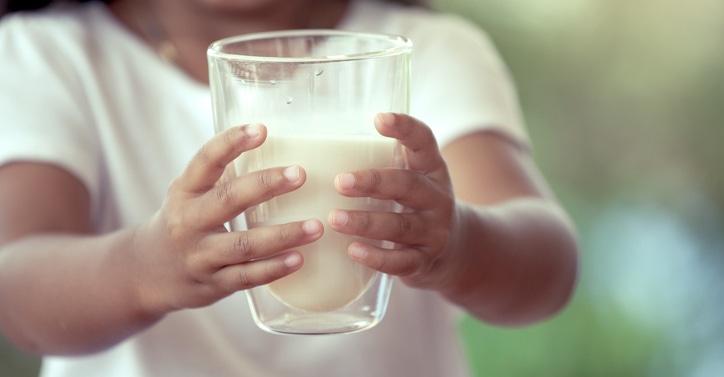Researchers: People on nondairy diets should compensate for possible low iodine intake
Most milk alternatives contain insufficient levels of iodine, a mineral needed by the body for metabolism and thyroid function, researchers say.
November 9, 2017

The prevalence of iodine deficiency has been a subject of ongoing debate, and researchers in Britain just added a new twist. They evaluated the levels of iodine in dozens of milk alternatives and found that most of them were very low in the nutrient—around 2 percent of what’s found in cow’s milk, they reported.
They analyzed 47 products representing seven types of nondairy milks—soy, almond, coconut, oat, rice, hazelnut and hemp (no infant formula), and most were found to contain insufficient levels of iodine. Individual servings of non-dairy milk provided around 2 mcg of iodine, which doesn’t contribute much toward the adult recommended intake of 150 mcg per day for adults. (In pregnancy, that amount jumps to 200 mcg per day.)
“Worryingly, most milk alternative drinks are not fortified with iodine and their iodine content is very low,” said lead researcher and registered dietitian Sarah Bath. “If avoiding milk and dairy products, consumers need to ensure that they have iodine from other dietary sources, where possible.”
Of the 47 samples, the researchers did identify three that were fortified. That was in Britain, and the percentage of brands in U.S. stores containing iodine may differ, but the takeaway is likely the same.
Perhaps there’s a message here for brands about an unmet need in the nondairy milk category?
About the Author(s)
You May Also Like




